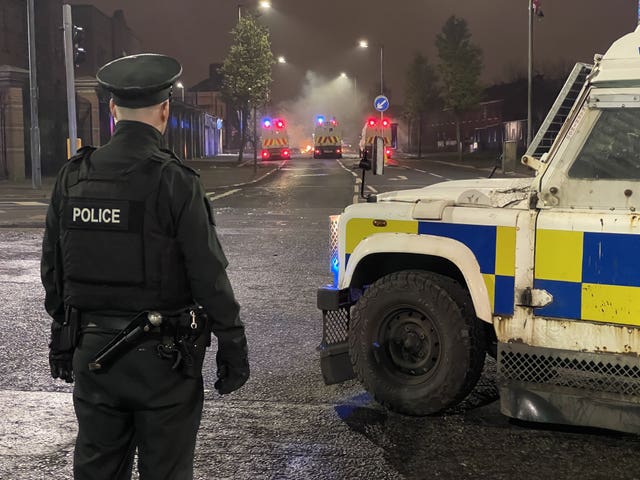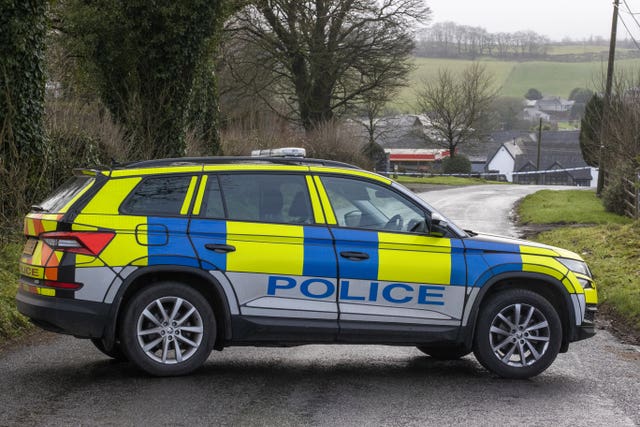The PSNI has a commissioned fleet of almost 2,700 vehicles, which cover around 27 million miles a year.
It includes armoured, non-armoured and commercial vehicles, as well as a number of aircraft, boats and motorcycles.
A new report by the Auditor General has found that since 2021/22, the PSNI has spent almost £26 million on purchasing new vehicles. However, more than a quarter of the fleet is more than 10 years old and an increasing number are off the road due to the need for repair.
The oldest vehicle recorded in the report is an armoured Land Rover that is almost 40 years old, while five HGVs and one motorcycle are more than 20 years old, and 20 vans are more than 15 years old.

It found that between 2021-22 and 2023-24, almost £11 million was spent on vehicle repairs and maintenance at internal workshops.
However, staffing capacity to carry out this work has reduced, resulting in an increased reliance on external contractors, who are more expensive.
The report also found an increasing number of vehicles were off the road due to the need for repairs and maintenance.
The proportion of the fleet in workshops on any given day increased from an average of 6% in 2021 to 16% in 2023 and, at its most extreme, almost 500 vehicles were off the road – around a fifth (20%) of the fleet.
The report found that it was in September 2023 that there were almost 500 vehicles in the workshops, and while the numbers reduced slightly in 2024, there were still more than twice the number of vehicles off the road compared to 2021.
The report found that capacity issues are also leading to delays in getting police vehicles ready for use in frontline services.
It found the average time to commission a vehicle was nine months, however many individual vehicles took much longer, with almost 25% taking over a year to commission.
The Auditor’s report examines how the PSNI has implemented its Fleet
Strategy, including plans for modernisation and progress towards its
sustainability targets for the fleet.

That strategy was launched in 2021 aimed at modernisation, improving technology and moving to a more environmentally sustainable fleet.
A key objective of the strategy was the introduction of around 700 electric vehicles (EVs) to the fleet.
However the issues outlined in the Auditor’s report mean that fleet replenishment rates are not keeping pace with the plans outlined in the Fleet Strategy, and the PSNI has had to maintain higher numbers of vehicles than anticipated.
It has therefore been unable to achieve expected cost reductions through standardisation and improved maintenance.
Meanwhile, the PSNI’s plan to increase the number of EVs, with almost 700 to be introduced by 2026 has been slower than expected.
The Auditor found that is partly due to issues with commissioning capacity – on average, it has taken 14 months to commission these vehicles.
The report also notes that installation of the necessary charging infrastructure has lagged behind the purchase of EVs, and finds that there was inadequate assessment of the challenges, timescales and investment required.
It references previous findings from the Northern Ireland Audit Office’s audit of the 2022-23 PSNI financial statements, which revealed that 100 EVs (with capital value of £2.4 million) had been purchased but not commissioned for use, being stored unused at PSNI’s Seapark facility for nearly a year.

Northern Ireland’s Comptroller and Auditor General, Dorinnia Carville, said effective fleet management is a “critical element” of the PSNI’s operational effectiveness.
“Achieving the planned fleet replenishment rates within the current financial environment will be challenging. However, managing an ageing fleet is also costly, with potentially significant operational impacts,” she said.
“This report finds that progress has been made in a number of areas but that there is much more to be achieved, particularly in relation to the introduction of electric vehicles.
“The installation of adequate charging infrastructure for a large number of EVs should have been a fundamental consideration before vehicles were purchased.
“Instead, a significant number of vehicles were acquired, at considerable cost to the public purse, and not put to timely use.
“A more joined-up approach within the PSNI, alongside a comprehensive Electric Vehicle Strategy, is overdue and should be completed as soon as possible.”
The report includes 10 recommendations including developing more detailed annual vehicle purchasing plans, setting specific commissioning time targets, reviewing how it maintains and commissions vehicles and develop an Electric Vehicle Strategy.








